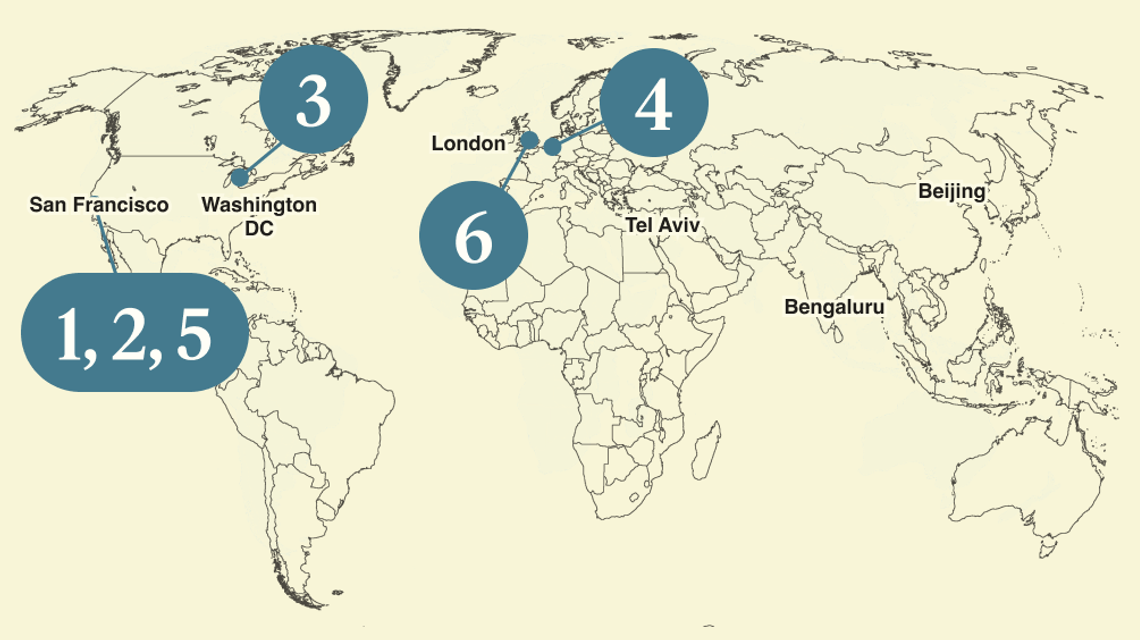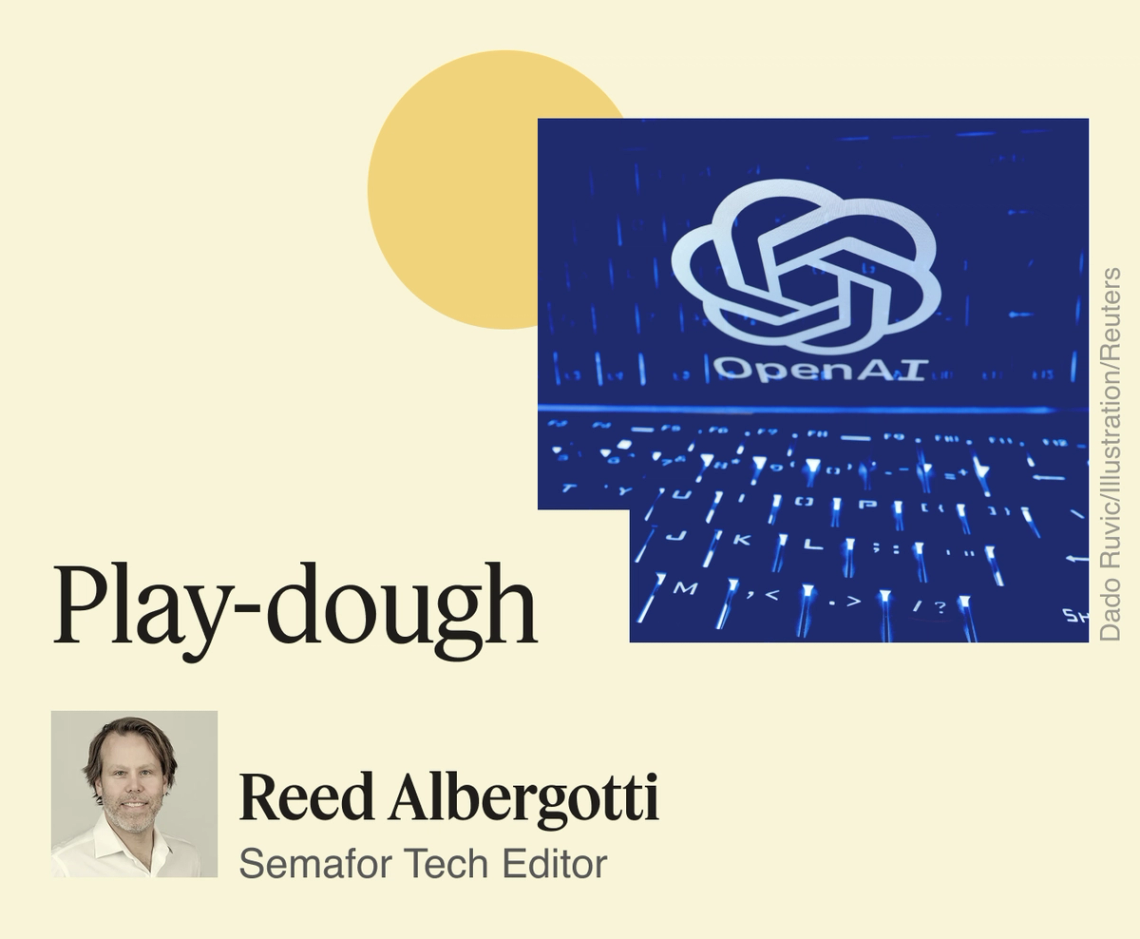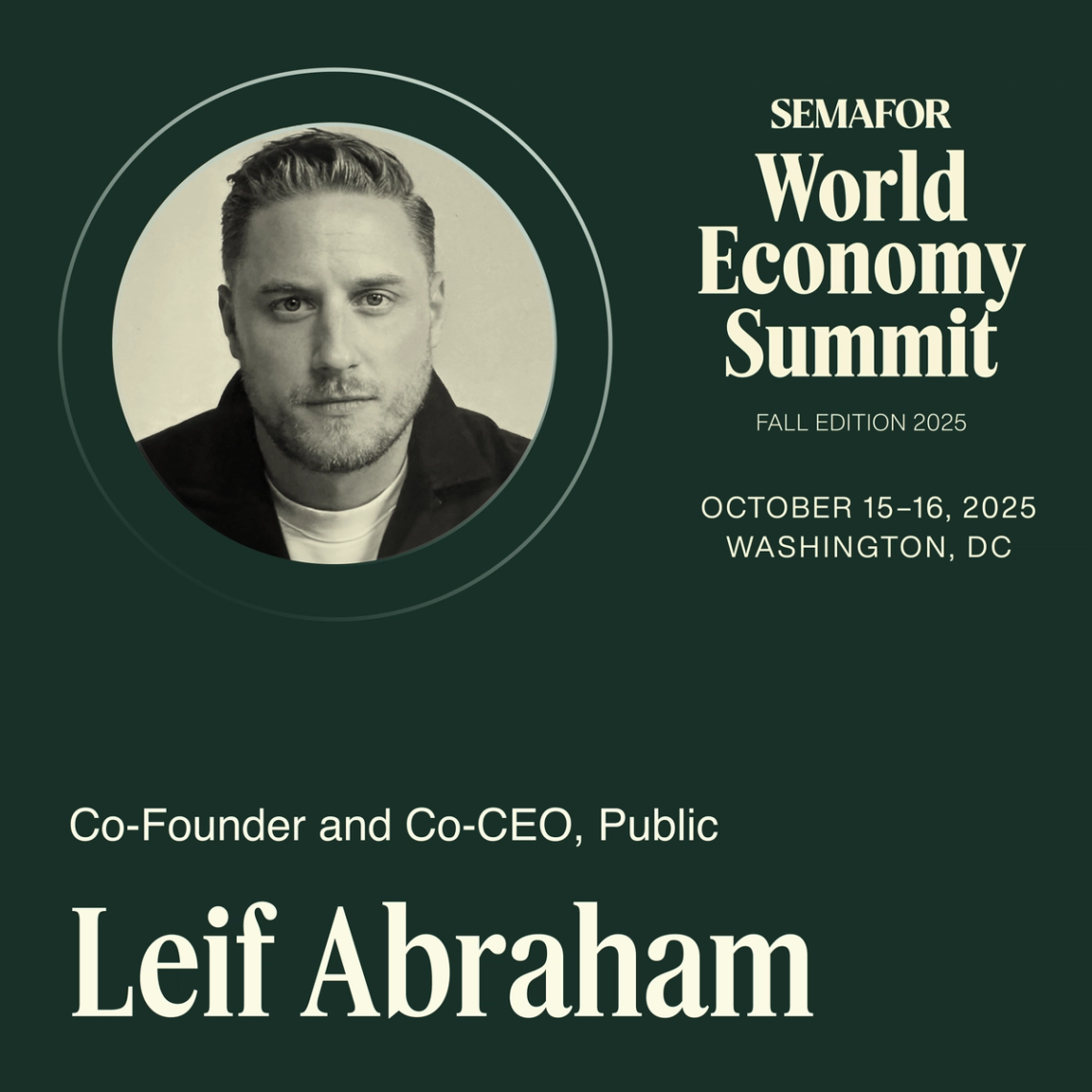| | In this edition, how OpenAI’s employees became the big winners, and Stripe’s deal moves closer to a ͏ ͏ ͏ ͏ ͏ ͏ |
| |  | Technology |  |
| |
|
 - Intel’s under pressure
- AI enters e-commerce
- Ford’s CEO on ‘industrial AI’
- Uber’s AI services push
- Perplexity’s costly move
- Hollywood’s latest villain
 How OpenAI’s rapid rise created a new class of millionaires, and the latest politician to fall under AI’s spell. |
|
 Much has been said about the great AI talent wars and the insane amount of money companies like Meta are offering to the best AI researchers in the field. But one and two tiers down, a generation of software engineers with shares in OpenAI — now the most valuable private company in the world — are cashing out and getting very, very rich. OpenAI’s tender offers, in which large investors offer to buy employee shares at a set price, have created a fascinating social experiment. An engineer could have joined the company a year ago and soon have enough money to retire, as The Information pointed out in June. In the most recent tender, employees sold $6.6 billion worth of stock. Obviously, compensation isn’t the only thing that drives people, especially in the tech industry and especially at a company like OpenAI that is building potentially world-changing technology. And for those who are financially motivated, there’s always the incentive to get even richer. In reality, most tech companies would probably love to jettison those who aren’t fully committed, even if they have to pay them millions of dollars in the process. Still, it will be fascinating to see what happens to a workforce that doesn’t really have to work. |
|
 Ann Wang/Reuters Ann Wang/ReutersDuring the twilight hours of the Biden administration, White House officials made a mad dash to try to save Intel. Part of the strategy had been to beg, plead, and arm-twist US semiconductor companies to commit to manufacturing their chips at Intel’s new fab. There were few, if any, takers and the ailing firm became the Trump administration’s problem. On Wednesday, Semafor’s Rohan Goswami reported that Intel competitor AMD is considering getting on board. The possible deal is notable not just because it’s a big potential customer for Intel, but because AMD and Intel are direct competitors in the x86 market. This, and the fact that Intel seemingly has the backing of the US government and a vote of confidence from Nvidia, has put wind back into the company’s sails after some dark days. But it also puts a lot of pressure on Intel’s foundry to succeed. Winning the confidence game doesn’t matter if it can’t build 2nm chips that are on par with TSMC. And it feels like a last chance. For years, Intel has overpromised and underdelivered. During that time, TSMC has been a well-oiled machine known for a steady stream of innovations and dependability — so much so that Intel itself is a customer. AMD’s interest could be a sign that Intel’s fab efforts have finally turned a corner, or it could be one last Hail Mary before time runs out. |
|
Stripe joins shift in online economy |
| |  | Reed Albergotti |
| |
 Semafor/YouTube Semafor/YouTubeI spoke with Emily Sands, Stripe’s head of AI, about the new payments protocol it launched with OpenAI earlier this week. We’ve gotten used to companies like Stripe finding ways to remove the friction from online buying. But I wanted to ask Sands about what this might mean down the road. It feels like the beginning of a new internet economy built around automation instead of advertising. Sands, who has a PhD in economics, responded: “With my economist hat on, I am actually imagining a world where global GDP goes up because the people with the most resources suddenly have slackened the most expensive part of spending for them, which is using their time. And you actually start to expand consumption by quite a bit in a way that’s very stimulating for the economy.” Listen to the whole interview here, which includes a cameo from OpenAI executive Michelle Fradin. |
|
Ford CEO: Silicon Valley overlooking front-line workers |
 Joey Pfeifer/Semafor Joey Pfeifer/SemaforFord CEO Jim Farley worries that America no longer values front-line jobs, and he lays part of the blame at Silicon Valley’s door. “The technologists have yet to fashion their technology towards this part of the economy,” he told Semafor’s Andrew Edgecliffe-Johnson. “But the irony is, they’re building all these data centers that require essential economy people.” He is referring to the 95 million workers who depend on trucks and vans for their livelihoods. His comment echoed remarks made by Barbara Humpton, just before she moved this week from running Siemens USA to be CEO of USA Rare Earth. “Silicon Valley right now is talking about transforming manufacturing. It’s like, ‘Have you done any manufacturing?’” she observed to Andrew. Both Humpton and Farley see huge promise in “industrial AI,” but realizing its value will require much better sharing of expertise between old and new industries. We know how Elon Musk would respond to these comments: “What did you get done this week?” |
|
Uber buys data labeling startup |
 Tyrone Siu/Reuters Tyrone Siu/ReutersUber has acquired Belgian data labeling startup Segments.ai for an undisclosed amount, as part of its push into the AI training space. The Y Combinator-backed platform helps engineers annotate objects in videos and LiDAR sensors to serve as training data for autonomous driving. Uber’s data labeling efforts were originally a function of its core business, but it has recently been selling these services to companies developing self-driving technologies around the world, Bloomberg reported. Data labeling, traditionally outsourced to gig workers, could be a big business for Uber, turning it into an AI services provider beyond a ride-sharing and delivery company. In other acquisitions news, BlackRock is reportedly nearing a deal to purchase data center builder Aligned Data Centers for a whopping $40 billion, as demand for the facilities that power AI skyrockets. The reports highlight the accelerating consolidation in AI, as the world’s biggest companies race for an advantage. |
|
Chatbots’ compute power problem |
| |  | Reed Albergotti |
| |
 Tasos Katopodis/Getty Images for Semafor Tasos Katopodis/Getty Images for SemaforI spoke with Perplexity CEO Aravind Srinivas after the company’s launch event Wednesday evening, when he announced its Comet web browser would soon be free for all users. The move was surprising because the browser’s capabilities undoubtedly burn through a significant amount of compute power, making it an expensive rollout. The autonomous, agentic features of the browser are also coming to mobile, he said, in the form of an app that allows voice interaction. I mentioned to Srinivas that I’m often frustrated by the voice modes in other chatbots because the capabilities are significantly reduced. For instance, Google’s Gemini Live can’t even access the most up-to-date information on the web, much less complete tasks for you. Srinivas, who often jabs the search engine giant, made an interesting point. If Google were to roll out the same features for free to its billions of users, there may not be enough compute in the world to handle the inference demand. It’s another way Google’s AI ambitions are complicated by its existing businesses and sheer size. While it opens up a lane for startups to break through, it’s also a reminder that the economics of AI are still being sorted out. Even OpenAI and Anthropic are often right on the edge of maxing out their ability to serve their customers. In the meantime, I’m looking forward to rattling off a bunch of tasks for Perplexity’s new “background assistant” while I’m driving to and from meetings, no matter how many GPUs I melt in the process. |
|
Actors’ union rails against AI performer |
 Particle6/Handout via Reuters Particle6/Handout via ReutersAn AI actress unveiled last week sparked backlash from the SAG-AFTRA actors union, which wrote in a statement, “To be clear, ‘Tilly Norwood’ is not an actor, it’s a character generated by a computer program that was trained on the work of countless professional performers — without permission or compensation.” The production studio behind Tilly said talent agents are interested, though one expert said no “serious” Hollywood executives are developing AI characters, Reuters reported. The criticisms underscore many artists’ aversions to AI creeping into their industry. Bollywood actors took the issue to court recently, and soon after, AI-generated videos of the celebrities disappeared from YouTube. Meanwhile, music giants Universal Music Group and Warner Music Group are nearing a deal to let AI companies license the studios’ songs to train their models, the Financial Times reported. The news emphasizes each industry’s individual role in figuring out when and how to incorporate new technologies. |
|
 Beijing and Washington are now so evenly matched that the Trump administration may have no other choice than to collaborate with China rather than risk confrontation, Semafor’s new Managing Editor for Live Journalism Andy Browne writes in his inaugural column for Semafor. “In certain technologies, China has not just caught up but pulled so far ahead the US may never be able to compete,” Browne, a veteran China watcher who was part of a Pulitzer Prize-winning team for his coverage of the country, writes. “So, despite the bellicose rhetoric often emanating from the White House and Capitol Hill, don’t be surprised if the two sides reach a pragmatic deal.” |
|
 Public Co-Founder and Co-CEO Leif Abraham will join the stage at the Fall Edition of Semafor’s World Economy Summit. Hosted in the Gallup Great Hall and spanning eight sessions over two days, Semafor editors will conduct on-the-record interviews on the state of global growth and finance, AI advancements, powering global energy needs, and the forces reshaping the world economy. Each session brings together the leaders and forces most directly shaping the global economy, with programming powered by Semafor’s world-class editorial and executive leadership. Oct. 15 & 16, 2025 | Washington, DC | Request Invi |
|
|